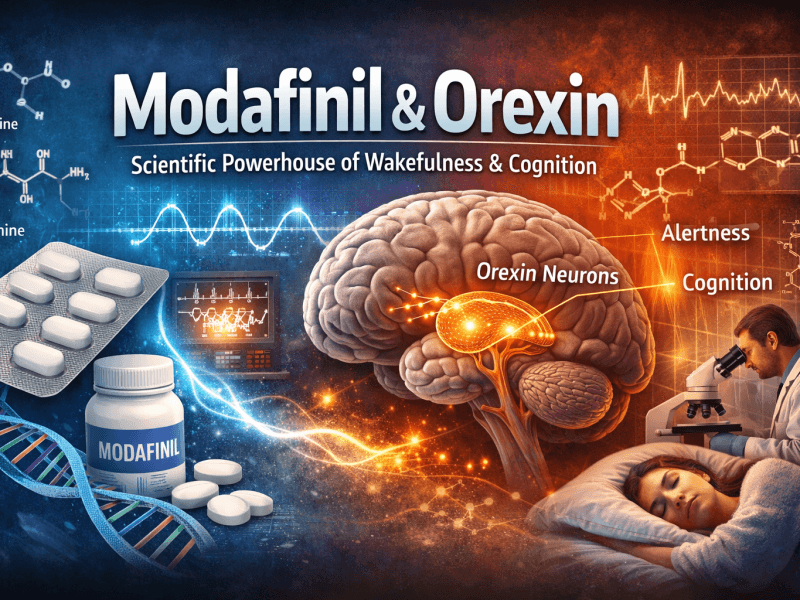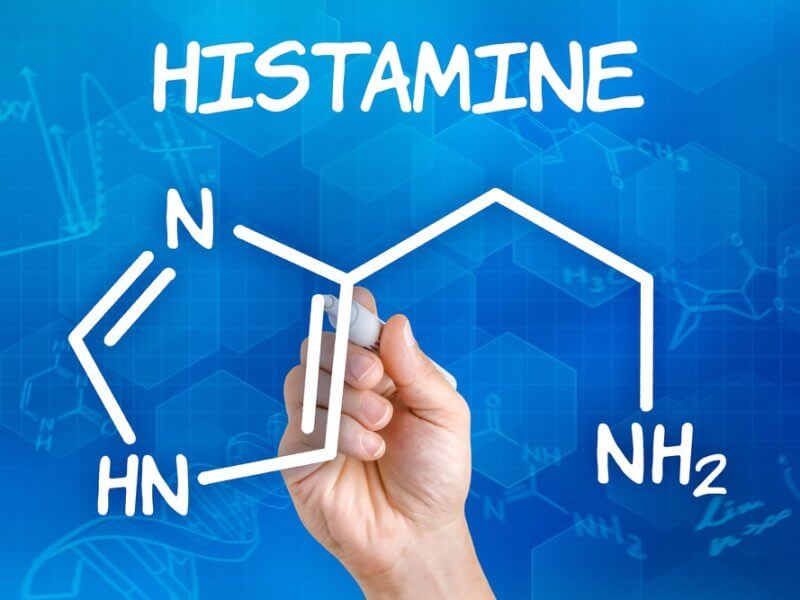Last Updated on 17/02/2025 by James Anderson
Modafinil has carved a distinct niche in the realm of cognitive enhancement. Originally developed as a treatment for narcolepsy and other sleep disorders, modafinil has gained popularity among professionals, students, and individuals seeking a mental edge. Its primary mechanism involves promoting wakefulness and reducing fatigue, offering users sustained focus and productivity.
Modafinil: A Prominent Drug in the Cognitive Arena
Mechanism of Action: Modafinil functions by influencing the brain’s neurotransmitters, particularly dopamine. Unlike traditional stimulants, modafinil does not cause abrupt spikes in dopamine levels, which reduces the risk of addiction. Instead, it enhances mental alertness by subtly balancing the chemical pathways in the brain.
Key Benefits of Modafinil:
- Improved Concentration: Users report enhanced focus during prolonged tasks.
- Reduced Fatigue: Helps combat mental and physical exhaustion.
- Boosted Productivity: Many professionals use it to meet high workloads.
- Low Risk of Dependency: Compared to other stimulants, modafinil exhibits a lower likelihood of abuse.
Despite its advantages, modafinil is not without drawbacks. Potential side effects include headaches, insomnia, and gastrointestinal discomfort. Additionally, long-term effects remain a subject of ongoing research, making it crucial to use modafinil responsibly.
Contenders in the Field of Cognitive Enhancement
The cognitive enhancement market is crowded with alternatives to modafinil. Below, we examine some of the most notable competitors, highlighting their mechanisms, benefits, and limitations.
1. Adderall
Adderall, a prescription medication primarily used to treat ADHD, is a widely known cognitive enhancer. It is composed of amphetamine salts that stimulate the central nervous system.
Advantages:
- Intense focus and concentration.
- Quick onset of action.
- Widely studied for ADHD and cognitive improvement.
Drawbacks:
- High risk of addiction and dependency.
- Side effects like irritability, insomnia, and appetite suppression.
2. Ritalin
Ritalin, another ADHD medication, operates as a stimulant by enhancing dopamine and norepinephrine activity.
Advantages:
- Effective for improving attention span.
- Short-acting and suitable for targeted tasks.
Drawbacks:
- Potential for abuse and dependency.
- Side effects include anxiety, cardiovascular strain, and headaches.
3. Noopept
Noopept, a synthetic nootropic, is renowned for its neuroprotective properties and ability to enhance cognitive function.
Advantages:
- Improves memory and learning capabilities.
- Low dosage required.
- Minimal side effects in short-term use.
Drawbacks:
- Limited research on long-term effects.
- Not FDA-approved in many countries.
4. Caffeine
Caffeine, the world’s most consumed psychoactive substance, is a natural stimulant found in coffee, tea, and energy drinks.
Advantages:
- Easily accessible and affordable.
- Improves alertness and reduces fatigue.
Drawbacks:
- Short duration of action.
- Can lead to dependency, tolerance, and withdrawal symptoms.
Unveiling the Uniqueness of Modafinil
While all cognitive enhancers offer benefits, modafinil’s unique properties set it apart:
- Non-Stimulant Nature: Unlike Adderall or Ritalin, modafinil is classified as a eugeroic. This means it promotes wakefulness without the jittery side effects commonly associated with stimulants.
- Sustained Effects: Modafinil’s effects last for up to 12 hours, providing consistent cognitive support throughout the day.
- Minimal Side Effects: Although modafinil has side effects, they are generally milder and less frequent than those of amphetamine-based drugs.
- Versatility: While designed for sleep disorders, modafinil’s off-label uses include enhancing productivity, combating jet lag, and supporting shift workers.
- Lower Abuse Potential: Its pharmacological profile makes modafinil less likely to lead to dependency compared to traditional stimulants.
Comparison Tables
Effectiveness of Cognitive Enhancers
| Enhancer | Primary Benefit | Duration of Effect | Risk of Dependency | Common Side Effects |
|---|---|---|---|---|
| Modafinil | Sustained wakefulness | Up to 12 hours | Low | Headaches, nausea, insomnia |
| Adderall | Intense focus | 4-6 hours | High | Insomnia, appetite loss, anxiety |
| Ritalin | Improved attention span | 3-4 hours | Moderate | Irritability, cardiovascular issues |
| Noopept | Memory and learning support | 6-8 hours | Low | Dizziness, irritability |
| Caffeine | Quick energy boost | 2-3 hours | Moderate | Jitters, dependency, withdrawal |
Cost Comparison
| Enhancer | Cost per Dose | Prescription Required? | Accessibility |
| Modafinil | Moderate | Yes | Limited |
| Adderall | High | Yes | Prescription-only |
| Ritalin | High | Yes | Prescription-only |
| Noopept | Low | No | Available online |
| Caffeine | Very low | No | Widely available |
Conclusion
In the debate of modafinil vs. other cognitive enhancers, it is evident that modafinil holds a unique position. Its non-stimulant nature, extended duration, and lower risk of dependency make it an appealing choice for individuals seeking sustainable cognitive enhancement. However, the ultimate choice of enhancer depends on personal needs, medical history, and the specific tasks at hand. While modafinil may not be suitable for everyone, its advantages warrant consideration as a leading cognitive enhancer in today’s competitive world.
‼️ Disclaimer: The information provided in this article about modafinil is intended for informational purposes only and is not a substitute for professional medical consultation or recommendations. The author of the article are not responsible for any errors, omissions, or actions based on the information provided.
References:
- Ballas, C. A., & Kim, D. Modafinil: Past, present, and future. A basic review on the clinical use and mechanisms of action of modafinil. 2012
- Turner, D. K., Robbins, T. W., Clark, L., Aron, A. R., Dawson, J., & Sahakian, B. J. Cognitive-enhancing effects of modafinil in healthy volunteers. Psychopharmacology. 2003
- Battleday, R. M., & Brem, A. K. Modafinil for cognitive neuroenhancement in healthy subjects without sleep deprivation: A systematic review. European Neuropsychopharmacology. 2015
- Winder-Rhodes, S. E., Hampshire, A., & Rowe, J. B. Effects of modafinil on prefrontal executive function in patients with schizophrenia and healthy volunteers. Neuropsychopharmacology. 2010
- Smith, M. E., & Farah, M. J. Are prescription stimulants “smart pills”? Epidemiology and cognitive neuroscience of prescription stimulant use in normal healthy individuals. Psychological Bulletin. 2011
- Benedict, C., & Cedernaes, J. The use of caffeine as a cognitive enhancer. Current Neuropharmacology. 2021
- Grilly, D. M., & Loveland, A. Treatment of ADHD with amphetamine: issues related to clinical use, abuse, and future research. Journal of Clinical Psychiatry. 2001
- Lanni, C., Lenzken, S. K., Pascal, A. Cognition enhancers between treatment and improvement: The key role of dopamine. Current pharmaceutical design. 2008
- Corneliussen, B., & Heckman, M. A. Effects of caffeine on mental alertness and its safety in the human population. Regulatory toxicology and pharmacology. 2009
- Vohs, K. D., Schmeichel, B. J., & Baumeister, R. F. Working memory capacity explains self-control performance in the context of ego depletion. Journal of Experimental Social Psychology. 2008


